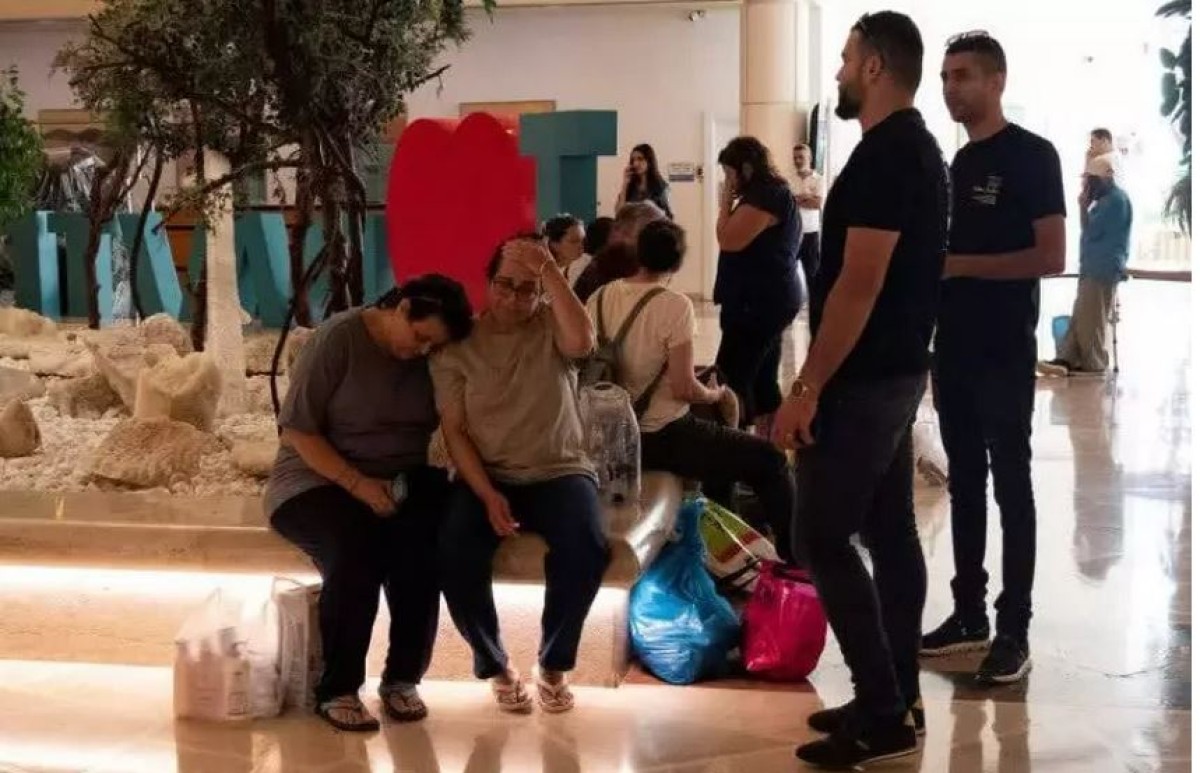 836
836
The Cost of Aggression: Israeli Settlers Bear the Brunt of Their Government's Military Failure
The Cost of Aggression: Israeli Settlers Bear the Brunt of Their Government's Military Failure
Over eight months into the Israeli aggression against the Gaza Strip and the subsequent rise in tensions between the Israeli regime and Lebanon's Hezbollah, the so-called "security strip" on the northern Israeli border remains a desolate land, a testament to the socioeconomic devastation wrought by Israeli warmongering. Thousands of students have fled the area, leaving businesses shuttered and educational institutions abandoned. The few who remain, primarily farmers tethered to their lands [stolen from their Palestinian owners] by necessity, are but a remnant of the once-thriving region now laid to waste.
The scale of this exodus is staggering. Official figures reveal that approximately 62,000 Israeli settlers have been forcibly evacuated, with an additional 30,000 choosing to leave the area voluntarily.
In this regard, the "Western-Eastern Galilee Resilience Center" paints a dire picture in its recent report, highlighting the daily destruction of settlements in regions like Metula due to anti-tank missile attacks. This ceaseless barrage has inflicted profound psychological trauma on the Israeli settlers, exacerbating their anxiety and sense of insecurity. Displaced settlers are now scattered across more than 400 hotels, with no clarity on when or if they might return to their settlements.
The plight of these refugees is marked by fear, indecision, and a pervasive sense of mental instability. Parents, in particular, are gripped by the inability to ensure the safety and well-being of their children. A recent survey underscores this bleak reality: 28% of the displaced settlers have no intention of ever returning to their settlements, 46% would consider returning if conditions permitted, and 26% remain undecided. Meanwhile, a staggering 65% of displaced households express deep dissatisfaction with the Israeli government’s inadequate housing solutions.
The mental health crisis among the displaced settlers is another facet of the Israeli war on Gaza. A significant 63% of northern settlers report poor mental health, with 65% not receiving any form of psychological treatment. The education system, too, is in shambles. Over 16,710 students from 43 northern towns have been relocated to makeshift educational institutions, which are woefully understaffed and ill-equipped to meet educational needs. The approaching end of the 2023–2024 academic year brings no respite, with the next year promising similar disruptions. Students, already shortchanged with only four hours of schooling per day in many areas, face an uncertain future.
Compounding these challenges is a burgeoning addiction crisis among Israeli youth. The Israeli war on Gaza has precipitated a surge in drug and alcohol addiction among teenagers, particularly those from border areas. Reports indicate a significant rise in psychosomatic symptoms and psychological distress, with more than half of affected youth not seeking help. A recent study reveals that 98% of teenagers in conflict zones have been exposed to severe traumatic events, leading to a marked increase in depression and anxiety. Substance abuse rates have soared, with 30% of displaced youth now consuming alcohol, a sharp increase from the previous year.
Despite these overwhelming issues, Israeli media has recently signaled an alarming escalation in the likelihood of a major war against Hezbollah. This saber-rattling by Israeli leadership occurs even as the government inspector’s reports pertaining to the Palestinian operation on October 7, 2023, starkly expose Israel’s unpreparedness for another mass evacuation. The report highlights bureaucratic infighting between the ministries of interior and war, leaving settlers uncertain about their fate in the event of an all-out war against Lebanon.
In light of this chaos, Prime Minister Netanyahu's proclaimed objective of returning evacuees to their northern settlements seems like a distant and increasingly unattainable dream. The Israeli regime's failure to adequately address the social crisis within its own borders is a damning indictment of its priorities. As the specter of renewed conflict looms large, the fate of thousands of displaced and traumatized settlers hangs precariously in the balance, overshadowed by the relentless march of Israeli warmongering.
 836
836
Comment
Post a comment for this article